TikTok: A Look Into the Culture and Practices of the Newest Social Media Disruptor
The new FAANG-like company on the block has some interesting work practices.
In this day and age, you can't discuss the social media market without including its most recent disruptor, TikTok.
The TikTok app allows users and influencers to create short-form mobile videos and post them to their social media accounts. TikTok is available in over 150 countries, boasts over 1 billion users, and has been downloaded over 175 million times in the United States alone. As of July 2020, Wallaroo reports TikTok has 800 million active users with around 70 million of them residing in the United States.
It's no secret that TikTok has taken the world by storm, but is joining this fast-growing team the right move? We'll talk about the history, controversy, and culture of the company so that you can make an informed decision.
The History Behind TikTok
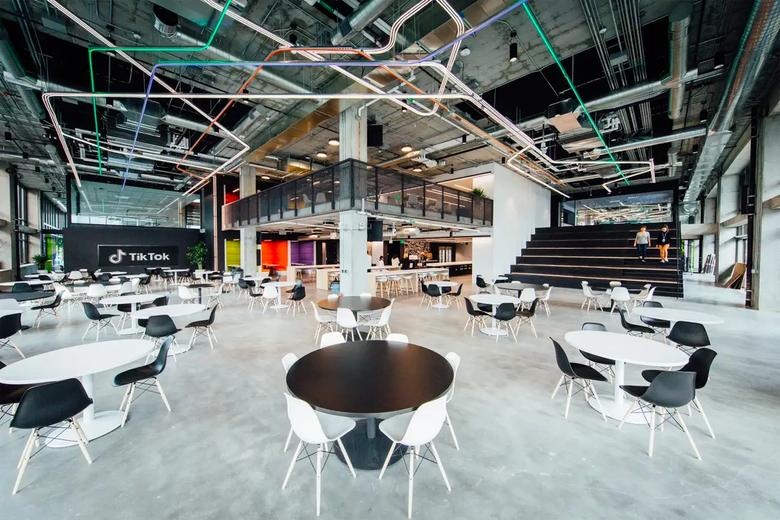
Photo credit: Business Insider
TikTok was the result of a merger between two distinct apps, known at their conception as Musical.ly and Douyin. Here's the timeline:
- Musical.ly was launched in 2014, hitting the No. 1 spot in the App Store in the summer of 2015, while Douyin launched in September of 2016 in China.
- In September of 2017, Douyin expanded to select international markets under a new name - TikTok.
- Bytedance, the parent company of TikTok, purchased Musical.ly in November of 2017 in a deal valued at $1 billion.
- ByteDance merged Musical.ly with the TikTok platform in August of 2018.
Following a boost created by the Covid-19 pandemic, TikTok's popularity has continued to surge: it surpassed 2 billion downloads worldwide in April across both IOS and Android devices, according to app analytics from Sensor Tower.
The TikTok Controversy
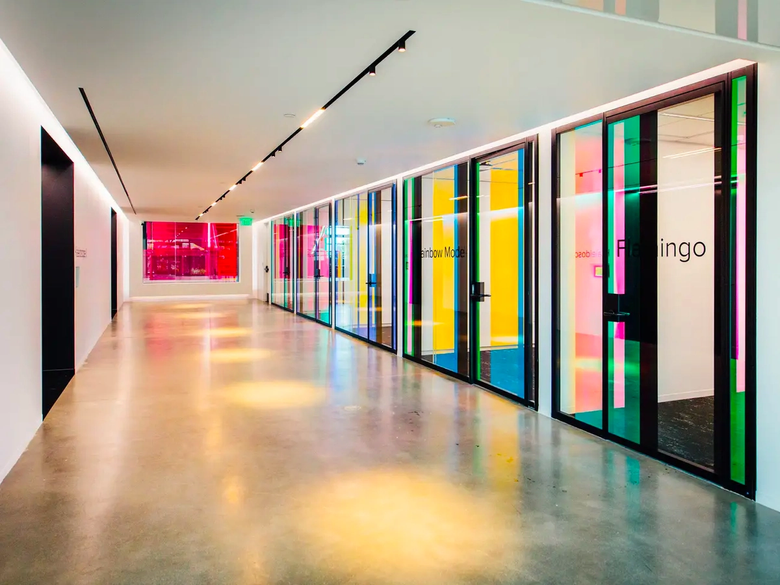
Photo credit: Business Insider
Behind the app...
Of course, all of TikTok's start-up success has not been free of controversy. Parts of the site have come under fire for reasons related to censorship and privacy preferences.
Government entities share concerns of privacy abuses (i.e. collection of personal information by the company), ties to the authoritarian Chinese government, and censorship of users deemed undesirable. Investigations have revealed TikTok has censored political and 'culturally problematic' content, and has even gone as far as to censor posts from disabled and queer creators without legitimate interest purposes.
For a variety of the aforementioned reasons, India, a market making up 30% of all TikTok downloads, announced it would ban the app in June.
In the United States, similar sentiments have been expressed by President Trump, though no policy actions have been undertaken. Certain companies like Amazon have discouraged employees from downloading the app, and Bloomberg reported that Wells Fargo has completely banned the use of social media accounts on the app from its employees.
Behind the hiring practices...
In an effort to consolidate its market share in the United States before these controversies start to affect public perception, ByteDance announced it would aggressively pursue TikTok jobs hiring in the U.S., with offices in Los Angeles, San Francisco, New York, and Austin.
Employees with a variety of roles, from data scientists to marketing managers and product managers, report being poached by TikTok employees and recruiters. The company is seeking out full-time strategists with experience at large tech companies like Snapchat, Apple and Google's YouTube. Similarly, TikTok opened an office in Mountain View, California to poach over two dozen full-time Facebook employees since 2018, as reported by CNBC.
However, with large portions of their new jobs moving to the United States, there is concern internally they will shrink to zero overnight if controversy continues. Consequently, some data analysts have already begun to interview elsewhere.
The Culture Inside the Company
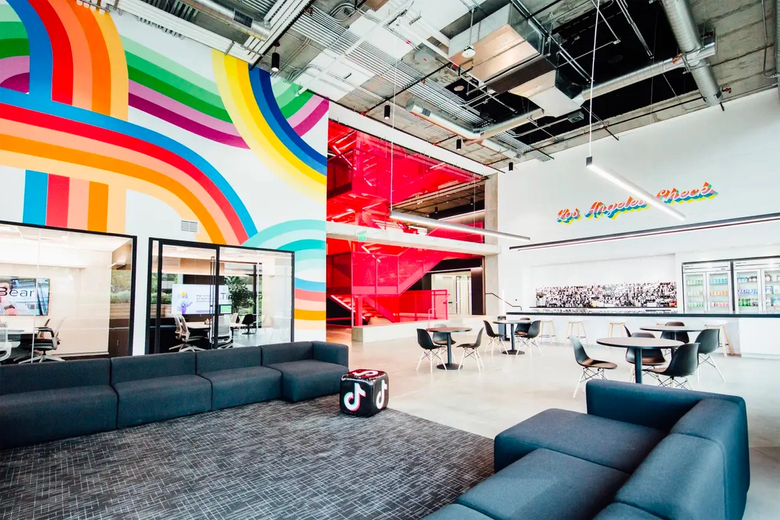
Photo credit: Business Insider
Reviews from current and former employees are overwhelmingly mixed. On the plus side, employees say that the environment is fast-paced and very interesting. Innovation is all around them, every day, and they have amazing people to share it with: Coworkers are described as friendly, helpful, and willing to collaborate.
However, some of the downsides require a little more exploration. Here are a few that we found...
1. Interview process is not transparent
According to Glassdoor reviews left by current employees, the interview process is in serious need of transparency for prospective TikTok employees. The company discloses very little to job seekers until the last minute.
Some employees reported being contacted via Whatsapp or LinkedIn by a recruiter to schedule their video interviews. They were made aware of the role they were being considered for and little else. Rarely is specific information concerning salaries and expectations shared prior to an offer being made, and prospectives are given as little as five days to respond to such offers.
2. Problematic leveling system
Another problem identified by former employees via Glassdoor is the leveling system present in the organization.
As has been typical of these tech start-up giants, those who joined early were up-leveled extremely fast. However, as the company matures, it is unable to sustain its explosive growth and welcomes a competitive poaching scheme to recruit TikTok employees. This means new joiners are down-leveled aggressively. Therefore, while competitive salaries are being offered to prospective employees from other tech companies, their career growth is stunted as they are relegated to responsibilities far below their pay grade.
3. Rumors of fake reviews
Clarity of TikTok's business practices is clearly lacking, as there are even discussions on Chinese forums that the company posts fake, positive reviews of their company to boost their public perception. One post explains that
"The role of HR is completely different between Chinese companies and American companies. ByteDance's HR is more biased towards Chinese characteristics and has more power. Their HR and PR also posted on Blind, something that large North American companies would not do."
4. Poor work-life balance
Lastly, the Chinese company is described by former employees as having a non-existent work-life balance, in which certain meetings or calls may be required to be taken outside of regular work hours due to time differences for global teams.
Depending on your job title, the amount of interaction required with global offices differs, but is certainly something to consider when discussing the culture of TikTok.
Comprehensive Benefits Package
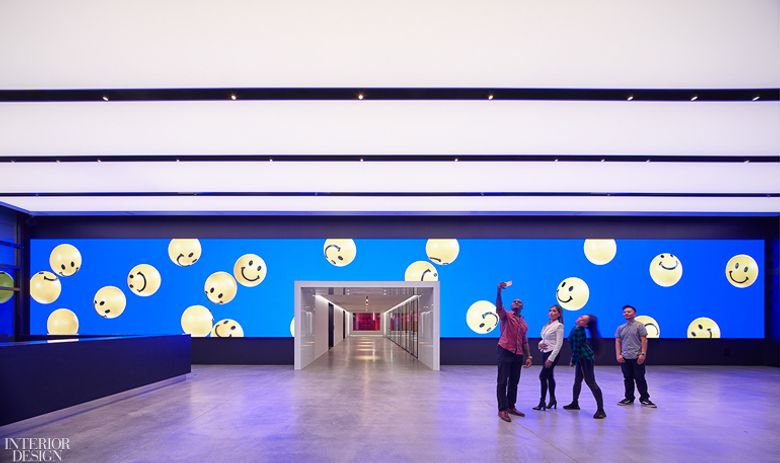
Photo credit: Interior Design
TikTok's benefits package offers great health insurance coverage and a lot of extra perks, but it falls a bit short on PTO and parental leave in comparison to other tech companies.
- 100% coverage on premiums for health, dental, and vision
- 15 days PTO (can roll over to next year) + 7 sick days
- 8 paid holidays + 4 floating holidays
- 17-week maternity leave and 6-week paternity leave
- 5% 401k match (50% match on up to 10% of employee salary)
- $60/month fitness stipend
- $110/year for language study
- $100/month phone stipend
- Meal stipends
- Free yoga classes
- Office supplies reimbursement
- WFH up to 2 days per week
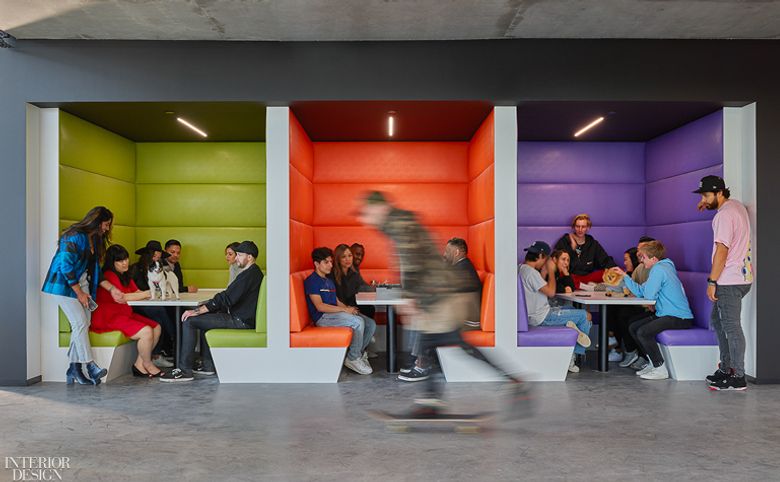
Photo credit: Interior Design
And if you're working in the office, you'll get access to some on-site perks as well. This LA-based TikTok employee described the office environment on Glassdoor:
"The office has all of the perks that you've heard other tech and social media companies display: galley kitchens, gaming stations, outdoor grills and fire pits - all that and a bag of chips!"
Should You Work for TikTok?
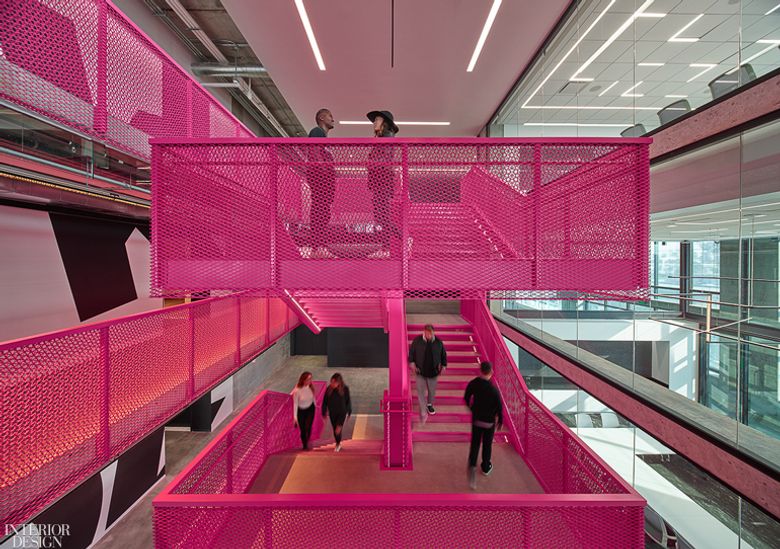
Photo credit: Interior Design
It is clear that ByteDance and, subsequently, TikTok have structured their organization to mirror American FAANG companies in terms of behaviors, organization, and management culture. While their success is unarguably tangible and the resume recognition is unmatched, they foster competitive cultures prone to poaching and a laddering structure that manages out underperforming employees.
Furthermore, they have clear privacy issues and other controversies, which will unquestionably affect their future prospects. TikTok falls into the category of largely unregulated tech companies, whose platform has become an integral part of the digital landscape. As society attempts to negotiate the security threats posed by these organizations, TikTok, whose success rides on a lack of regulation, will undoubtedly be impacted.
The information provided herein is for general informational purposes only and is not intended to provide tax, legal, or investment advice and should not be construed as an offer to sell, a solicitation of an offer to buy, or a recommendation of any security by Candor, its employees and affiliates, or any third-party. Any expressions of opinion or assumptions are for illustrative purposes only and are subject to change without notice. Past performance is not a guarantee of future results and the opinions presented herein should not be viewed as an indicator of future performance. Investing in securities involves risk. Loss of principal is possible.
Third-party data has been obtained from sources we believe to be reliable; however, its accuracy, completeness, or reliability cannot be guaranteed. Candor does not receive compensation to promote or discuss any particular Company; however, Candor, its employees and affiliates, and/or its clients may hold positions in securities of the Companies discussed.
